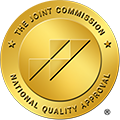At Memphis Detox, we integrate DBT techniques into our addiction treatment programs to support emotional regulation for our patients, reduce relapse, and promote lasting recovery. Backed by research and clinical outcomes, DBT helps clients break the cycle of addiction and build a more stable, fulfilling life.
Core Components of DBT
- Mindfulness: Learning to be present in the moment, observe thoughts and feelings without judgment, and increase awareness of triggers and cravings.
- Distress Tolerance: Building skills to cope with pain, stress, and urges without resorting to substance use.
- Emotion Regulation: Understanding and managing intense emotions that often drive addictive behaviors.
- Interpersonal Effectiveness: Improving communication, setting boundaries, and building supportive relationships that foster recovery.
How DBT Differs from Other Addiction Therapies
Benefits of
DBT for Addiction Recovery
Research shows that DBT can significantly reduce relapse rates in people with substance use disorders. By teaching practical coping skills and helping individuals understand the emotional drivers of addiction, DBT empowers people to make healthier choices even in high-risk situations.
At Memphis Detox, we’ve seen firsthand how DBT empowers clients to stay grounded during moments of emotional distress. Our licensed clinicians incorporate DBT principles into personalized treatment plans, informed by clinical practice, that support lasting behavioral change and emotional healing.
DBT equips individuals with tools to identify and manage triggers and cravings. Mindfulness and distress tolerance skills help people pause, observe their urges, and choose healthier responses instead of automatically turning to substances.
Many people with addiction struggle with overwhelming emotions. DBT’s emotion regulation strategies help individuals recognize, label, and manage their feelings, giving them better control and reducing the likelihood of using substances to cope.
DBT fosters motivation by helping individuals clarify their values, set meaningful goals, and build a life worth living without substances. The therapy’s collaborative approach also increases accountability, commitment to recovery, and the application of therapy skills.

DBT Techniques and Skills for Addiction
Mindfulness Practices for Substance Use
Mindfulness is at the heart of DBT. In addiction recovery, mindfulness practices help individuals become aware of cravings, thoughts, and emotions as they arise. This awareness creates space to make conscious choices rather than acting on impulse.
Examples:
- Observing cravings without judgment
- Practicing mindful breathing during stressful moments
- Using “wise mind” to balance emotion and reason
Distress Tolerance Skills for Urges
Distress tolerance skills teach individuals how to survive crises and manage intense urges without using substances. These skills include distraction, self-soothing, problem-solving, and radical acceptance.
Examples:
- Using ice or cold water to ground oneself during a craving
- Engaging in healthy distractions like exercise or creative activities
- Accepting the presence of discomfort without trying to escape it
Emotion Regulation Strategies
Emotion regulation skills help people understand the connection between emotions and substance use. DBT teaches techniques to reduce vulnerability to negative emotions and increase positive experiences.
Examples:
- Identifying and labeling emotions
- Building mastery through daily accomplishments
- Increasing positive activities and relationships
Interpersonal Effectiveness in Recovery Support
Healthy relationships are crucial for recovery. DBT’s interpersonal effectiveness skills help individuals communicate their needs, set boundaries, and seek support without conflict or manipulation.
Examples:
- Assertive communication
- Saying “no” to offers of substances
- Asking for help from sober friends or support groups
Dialectical Abstinence: A Unique DBT Approach
By using DBT skills such as mindfulness and emotional regulation, people can respond to cravings and setbacks with self-compassion, rather than self-criticism. This approach helps individuals reduce their substance use over time, improve their quality of life, and stay committed to recovery, even when challenges arise. Dialectical abstinence is about making progress, rather than demanding perfection, and it supports individuals in treating addiction with both determination and understanding.
12-Step Programs and DBT: Integrating Approaches
Integrating these approaches allows individuals to benefit from the strengths of both—gaining practical skills from DBT while also finding encouragement and accountability within a group setting. This combination can be especially powerful for those seeking a holistic recovery experience that addresses both the physical and emotional dimensions of addiction.
Inpatient vs. Outpatient DBT Programs
- Inpatient DBT Programs: Provide intensive, structured support in a residential setting. Ideal for individuals with severe addiction or co-occurring disorders.
- Memphis Detox offers inpatient care where DBT-informed therapy is part of a comprehensive recovery plan tailored to each person’s emotional and physical needs.
- Outpatient DBT Programs: Offer flexibility for those who need to maintain work, school, or family responsibilities while receiving treatment.
What to Expect in a DBT Group for Addiction
Frequently Asked Questions (FAQs)
Yes, DBT can be integrated with other evidence-based therapies, such as medication-assisted treatment, 12-step programs, and cognitive-behavioral therapy.
DBT programs typically last 6 months to a year, but the duration may vary based on individual needs and progress.
DBT can be adapted for various substance use disorders, including alcoholism, drug addiction, and behavioral addictions.
The main skills include mindfulness, distress tolerance, emotion regulation, and interpersonal effectiveness.
You can search for licensed DBT therapists through professional directories, addiction treatment centers, or your insurance provider’s network.
Many insurance plans cover DBT as part of mental health and addiction treatment. Check with your provider for specific coverage details.

Personalized DBT Support at Memphis Detox
At Memphis Detox, we integrate DBT-informed care into our addiction treatment programs, helping individuals build a solid foundation for long-term recovery. If you or a loved one is struggling with addiction and emotional regulation, contact Memphis Detox today to learn how our compassionate team can support your healing journey.
- [Substance Abuse and Mental Health Services Administration (SAMHSA): Dialectical Behavior Therapy](https://www.samhsa.gov/resource/ebp/dialectical-behavior-therapy-dbt)
- [National Institute on Drug Abuse (NIDA): Behavioral Therapies](https://nida.nih.gov/publications/drugfacts/treatment-approaches-drug-addiction)
- [National Library of Medicine: DBT for Substance Use Disorders](https://www.ncbi.nlm.nih.gov/pmc/articles/PMC2963469/)



